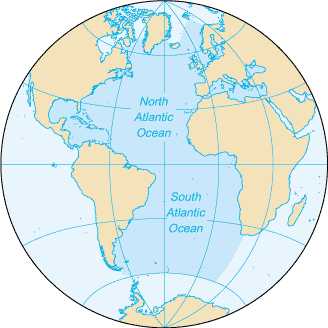Atlantic Ocean

The Atlantic Ocean is the second-largest ocean on Earth and plays a crucial role in global climate regulation through thermohaline circulation. Understanding Atlantic dynamics provides essential insights for designing ocean systems in terraformed worlds.
Characteristics
- Area: 106.5 million km²
- Average depth: 3,332 meters
- Maximum depth: 8,486 meters (Puerto Rico Trench)
- S-shaped basin between continents
- Mid-Atlantic Ridge - active spreading center
Climate Regulation
Thermohaline Circulation
- Gulf Stream - warm water transport northward
- Deep water formation in polar regions
- Global conveyor belt circulation pattern
- Heat redistribution from equator to poles
Weather Patterns
- Hurricane formation and development
- Storm track influence on continental weather
- Seasonal temperature moderation for coastal regions
- Evaporation source for precipitation patterns
Terraforming Applications
Ocean Design
- Basin geometry effects on circulation
- Thermal regulation through ocean currents
- Climate stability through thermal mass
- Weather pattern control systems
Marine Ecosystems
- Primary productivity zones establishment
- Deep ocean ecosystem development
- Migration routes for marine life
- Carbon cycling through marine organisms
Resource Management
- Fisheries development for food security
- Mineral extraction from ocean floor
- Energy generation from ocean currents
- Transportation routes for global connectivity
This article is a stub. Help expand our knowledge base by contributing more information about ocean engineering and marine ecosystem establishment in terraforming.